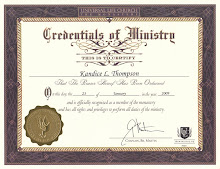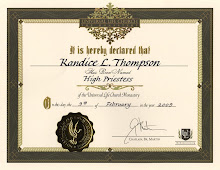 "I refuse to accept the view that mankind is so tragically bound to the starless midnight of racism and war that the bright daybreak of peace and brotherhood can never become a reality."
"I refuse to accept the view that mankind is so tragically bound to the starless midnight of racism and war that the bright daybreak of peace and brotherhood can never become a reality."Rev. Dr. Martin Luther King, Jr.,
Nobel Prize Acceptance Speech (PDF)
December 10, 1964.
Rev. Dr. Martin Luther King, Jr., twentieth-century America's most compelling and effective civil rights leader, was born on January 15, 1929, in Atlanta, Georgia. After entering Morehouse College at age fifteen, King followed his father and grandfather into the Baptist ministry. He received a bachelor of divinity from Crozer Theological Seminary in 1951 and a Ph.D from Boston University in 1955.
King entered the civil rights movement in 1955. A young, newly married pastor of a Montgomery, Alabama church, he was asked to lead a bus boycott aimed at ending segregation of public transport in Montgomery. The boycott, initiated by Rosa Parks' refusal to surrender her bus seat to a white passenger, lasted over a year and resulted in the desegregation of the city's buses.
A founder of the Southern Christian Leadership Conference, King advocated non-violent action as a means of lifting racial oppression. Sit-ins, marches, and peaceful demonstrations highlighted issues of inequality. The commitment and moral integrity of activists who remained calm in the face of violent opposition inspired national admiration. Jailed during an Alabama campaign to abolish segregated lunch counters, King delineated his philosophy of nonviolence in the now famous "Letter From the Birmingham Jail."
On August 28, 1963, King participated in the March on Washington for Jobs and Freedom. From the steps of the Lincoln Memorial, he delivered his famous "I Have A Dream (PDF)" speech, to a crowd of 250,000. An eloquent call to action, the speech emphasized his belief that the movement would create a society in which character, rather than color, prevailed.
In December 1964, Rev. Dr. Martin Luther King was awarded the Nobel Peace Prize. Labor leader A. Philip Randolph sent a congratulatory telegram praising King's "brilliant and matchless leadership." King responded with a letter emphasizing the prize as "an award for the whole civil rights movement and its dedicated leaders" and urging it "inspire all of us to work a little harder and with more determination to make the American Dream a reality."
On April 4, 1968, while in Memphis, Tennessee supporting a strike by the city's sanitation workers, Rev. Dr. Martin Luther King was assassinated as he stood on the balcony of his hotel. Just thirty-nine years old, he left a wife, Coretta Scott King, and four young children.
most of this posted information was provided by: http://memory.loc.gov/ammem/today/jan15.html
















No comments:
Post a Comment